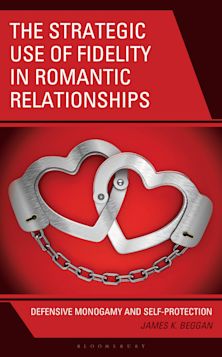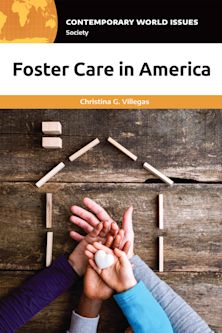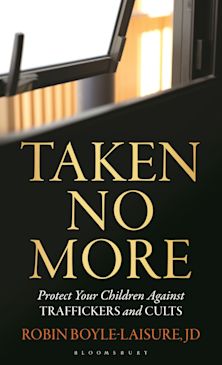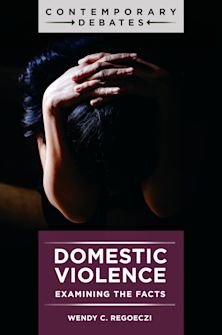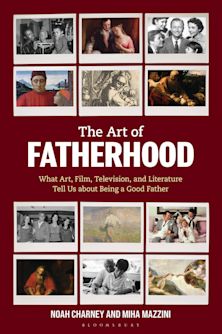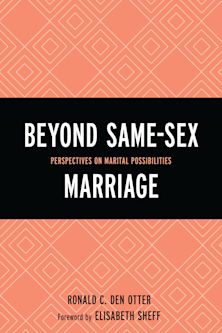- Home
- ACADEMIC
- Sociology
- Sociology of the Family
- Broken Bonds
You must sign in to add this item to your wishlist. Please sign in or create an account
Description
The United States has the highest family fragmentation rates in the industrial world. Nonmarital birth rates for the nation as a whole are 40%, with proportions dramatically higher in many communities as defined by race, ethnicity, or geography. Divorce rates, while moderating in recent decades, are still estimated at about 40% for first marriages and 50% for second ones. Together, this fragmentation impacts millions of children as well as adults, leading to educational, economic, and other losses that in turn lead to lower social mobility and deepening class divisions.
In Broken Bonds, Mitch Pearlstein explores the declining state of the American family and what its disintegration means for our future. Based on candid interviews with forty leading family experts across the political spectrum - from Stephanie Coontz, to Heather Mac Donald - Pearlstein ruminates on the political, social, and spiritual fallout of this trend. In honest and frank conversations, Pearlstein and his interviewees fearlessly diagnose the problems that many have been too timid to explore and suggest ways to reverse these trends that threaten our social fabric.
Product details
| Published | Aug 07 2014 |
|---|---|
| Format | Ebook (Epub & Mobi) |
| Edition | 1st |
| Extent | 160 |
| ISBN | 9781442236646 |
| Imprint | Rowman & Littlefield Publishers |
| Publisher | Bloomsbury Publishing |
About the contributors
Reviews
-
Divorce, single-parenthood, and the diminished stature of the institution of marriage are primary drivers of widening income inequality according to conservative scholar Pearlstein’s follow-up to his 2011 book, From Family Collapse to America’s Decline. . . . Pearlstein is a genial and generous enough researcher to provide space for opposing and non-committal writers, who challenge his conclusions here. . . . The writers, academics, and policy wonks, have no problem pushing back. The more liberal Stephanie Coontz provides point-by-point rebuttals to his argument, while the right-wing Hoover Institute’s Terry Moe, who should be Pearlstein’s natural ally, bluntly asks, “Why focus on family fragmentation?” Conservative scholar Lawrence Mead agrees that unstable families have an impact on opportunity, but points to lack of jobs as a bigger factor. Pearlstein is to be commended for allowing this level of dissent, since it engages the reader more profitably than many pro-family polemics.
Publishers Weekly
-
Most books about family breakdown are leaden, statistics-laden exercises, but Pearlstein has taken a novel approach: He interviewed 40 interesting, well-informed experts and condensed those conversations into a short, highly readable seminar. The interviewees range from Isabel Sawhill to Kay Hymowitz to Heather Mac Donald to Chester Finn, with the overall effect being that the reader feels as though he’s sitting in a coffee shop eavesdropping on a particularly stimulating and elevated discussion.
The Weekly Standard
-
Broken Bonds makes this much clear: Family fragmentation is a problem of serious magnitude, one that is not going away anytime soon, and thus one that will require great patience and persistence to tackle. If the first step to addressing family fragmentation is acknowledging that it is a problem, then Pearlstein laudably takes us closer to that public consensus. He does this effectively because of the spectrum of his respondents and the gold mine of material that resulted. And yet there is so much more to do.
The Institute for Family Studies
-
In Broken Bonds: What Family Fragmentation Means for America’s Future, Mitch Pearlstein offers a compelling and thoughtful look at the state of the American family in today’s changing world. Mitch’s ability to distill data and strong and diverse opinions from leading thinkers sets him apart as one of the most engaging educators on this subject. As we look to the future, finding ways to foster strong, committed family life will be key to restoring economic mobility in our nation.
Former Florida Governor Jeb Bush
-
Mitch Pearlstein is an admitted conservative who’s suspicious of party labels; a man so out of kilter with his times that he actually believes he can learn from those with whom he disagrees. He has much to say, but his big idea in this particular book is engaging carefully with what forty other people (including me, another mark of his good taste) have to say. Pearlstein is the guy I’d choose six days a week and twice on Sunday to write an important book on America’s most urgent problem: family fragmentation. And who, thank goodness, has written such a book.
David Blankenhorn, president, Institute for American Values
-
In a number of ways, America is clearly declining. Inequality is rising. Family life in America has been shattered more than in any other advanced society. More eagle-eyed than most observers, Mitch Pearlstein sees the link between these three, and he shows powerful reasons to see family fragmentation as the cause of the other two. He dares to ask about "fathers" and "marriage" where other writers fear to speak up. Best of all, he has chosen forty of America's extraordinarily wise and experienced thinkers on these subjects, and interviewed them at great length. They are brilliant in succinct statements of their views. Pearlstein is brilliant in weaving this great conversation together in a slender volume. Every family is so personal, so complex, so angular and many-sided, that only a humane conversation can treat it vividly and with the human admiration it deserves. Pearlstein's unique method makes this the best book on the cultural role of marriage and fatherhood now available.
Michael Novak, former U.S. Ambassador to the U.N. Human Rights Commission, 1994 Templeton laureate












